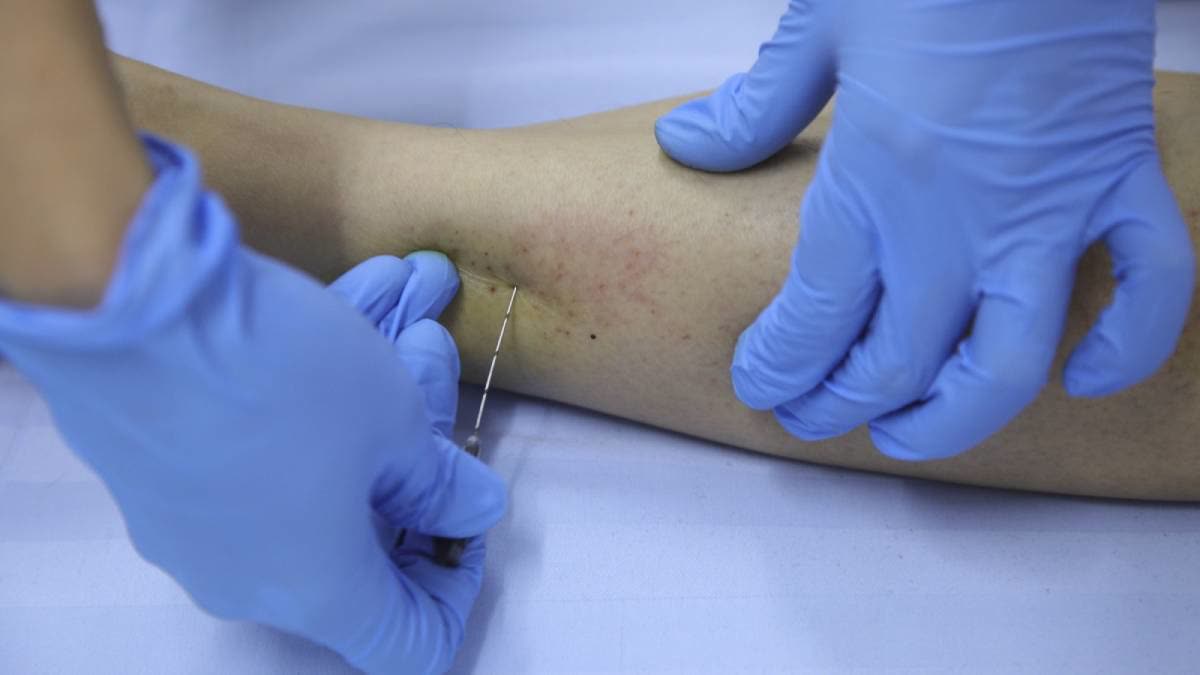New Delhi: Even as India has come up with its indigenously-developed antibiotic (Nafithromycin), targeting drug-resistant infections, infectious disease experts said combating antimicrobial resistance (AMR) requires responsible use of antibiotics, infection prevention through hygiene and vaccination, strengthened surveillance, public awareness, and innovation in developing new treatments.
"Yes, somehow it will cater to India's fight against AMR. Combating AMR requires responsible antibiotic use, infection prevention through hygiene and vaccination, strengthened surveillance, public awareness, and innovation in developing new treatments. Regulatory measures to curb misuse in healthcare is vital to protect future efficacy," Dr Indra Shekhar, of the infectious disease department of AIIMS Delhi and president of the Resident Doctors’ Association, said.
"It’s (Nafithromycin) safer. However, we need more and more studies on diverse clinical settings to see its effect which will take time," he said.
Nafithromycin is a novel ketolide antibiotic developed for the treatment of respiratory tract infections. It exhibits potent activity against a range of gram-positive and atypical pathogens, including Streptococcus pneumoniae, Haemophilus influenzae, and Mycoplasma pneumonia, he said.
"Its mechanism of action involves inhibition of bacterial protein synthesis by binding to the 50S ribosomal subunit, similar to other macrolides but with enhanced binding affinity and reduced resistance potential. Nafithromycin is designed to address macrolide-resistant strains, making it a promising candidate for combating antibiotic-resistant respiratory infections," he said.
The antibiotic was developed with the support of the Biotechnology Industry Research Assistance Council (BIRAC), a unit of the Department of Biotechnology. It has been launched in the market under the trade name "Miqnaf" by the pharmaceutical company Wolkardt, marking a significant step in addressing antibiotic resistance.
Nafithromycin is also designed to treat Community-Acquired Bacterial Pneumonia (CABP), a severe illness caused by drug-resistant bacteria, which disproportionately affects vulnerable populations, including children and the elderly as well as immune-compromised hosts like patients with diabetes, cancers etc.
Announcing the soft-launch of the antibiotic to combat drug resistance, Dr Jitendra Singh, union minister for science and technology has recently described the three-day treatment regimen of Nafithromycin as a game-changer in addressing drug-resistant pneumonia, a condition responsible for over two million global deaths each year.
India, with 23 per cent of the world’s community pneumonia burden, faces challenges with existing treatments, including widespread resistance to drugs like azithromycin.
"The new antibiotic, developed by Wockhardt with support from the BIRAC, is ten times more effective than current alternatives and offers a safer, faster, and more tolerable solution for patients," he said.
India has a huge number of community-acquired bacterial pneumonia and contributing factors such as excessive antibiotic use, misuse, and insufficient infection control underscore the urgency for innovative solutions like Nafithromycin to address this escalating public health crisis, Dr Tamorish Kole, chair of the Clinical Practice Committee of the International Federation for Emergency Medicine, said.
"Showcasing India’s burgeoning pharmaceutical innovation, Nafithromycin delivers a tenfold efficacy compared to conventional treatments like azithromycin, with a significantly reduced three-day regimen. Its distinguishing features include ultra-short therapy duration, oral dosing, rapid concentration in lung tissues, and an excellent safety profile. This groundbreaking antibiotic is particularly vital in India, where the burden of drug-resistant pneumonia is profound, offering a locally developed, effective solution to one of the most critical healthcare challenges globally," Kole said.
A statement from the Ministry of Science & Technology said the development of Nafithromycin represents 14 years of dedicated research and an investment of Rs 500 crores, with clinical trials spanning the US, Europe, and India. The drug is now awaiting final approval from the Central Drugs Standard Control Organization (CDSCO) for manufacturing and public use, marking a major leap forward in India’s fight against AMR.
Dr Sayan Maharatna, an infectious disease expert and senior resident (infectious disease) at AIIMS, said fighting AMR is not possible with a single drug. "Fighting AMR is multi-sectoral and interdisciplinary. It incorporates alternative farming strategies without pesticides, wastewater surveillance, and most importantly restricting over-the-counter access to broad-spectrum and newer antibiotics. Along with that, it takes a lot of in-hospital measures of infection control, and diagnostic and antimicrobial stewardship strategies. So a single new drug is not enough. But yes, it’s important to keep looking for new antibiotics, but that is just a small part of the fight against AMR," he said.
According to Maharatna, the data that has come so far seem promising. As levofloxacin Moxifloxacins (Fluoroquinolones) are anti-TB drugs, their rampant use on an outpatient basis for suspected pneumonia can be a threat to the development of multidrug-resistant TB. "So, an alternative from another category of antibiotics is welcome. But we need to keep in mind that the principle of judicious use should be at the core of using any antibiotics be it new, omnipotent or backdated," he said.
Stating that more follow-up data will be required in different categories of patients to assess the actual efficacy of the drugs, Maharatna said, "The finding from one or two studies even if it is a multicentric randomised control trial cannot be juxtaposed on all categories of patients. More studies and real-world experience are required. A follow-up data of such patients treated with a three-day course of antibiotics is important".
Also Read:
- Protect Your Baby's Vision, Essential Eye Care Tips For The First Year
- Behavioural Science Nudges You Forward On The Path To Wellness
